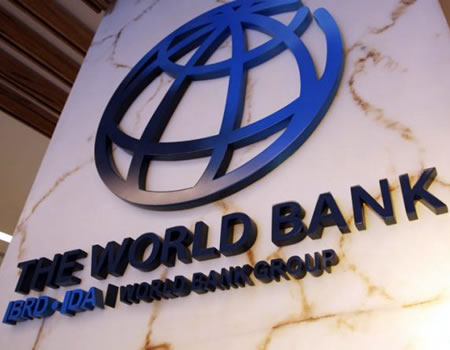The World Bank has underscored the crucial role of cash transfers in rescuing Nigerians from intergenerational poverty traps, particularly in the face of inflation and sluggish economic growth that disproportionately impact the nation’s poor. In its latest report, ‘Macro Poverty Outlook: Country-by-country Analysis and Projections for the Developing World,’ the World Bank predicts that inflation and low economic growth could push an additional 2.8 million people into poverty by the close of 2023.
The report anticipates a peak in the share of Nigerians living below the international poverty line in 2024, reaching 38.8%. To counteract this, the World Bank recommends targeted measures, including cash transfers, to alleviate short-term adjustment costs for the poor and vulnerable, reducing the risk of them falling into intergenerational poverty traps.
Currently, an estimated 37.5% of Nigerians live below the international poverty rate of $2.17 per day, while a staggering 70.4% live below the lower middle-income poverty rate of $3.65 per day in 2023.
Despite an expected rise in expenditure due to the implementation of compensatory measures, the World Bank foresees a decrease in the budget deficit from 5% of GDP in 2022 to approximately 4% in 2025. However, concerns arise as public debt is projected to reach 45% of GDP in 2023 due to fiscal financing needs and the depreciation of the naira. Debt servicing is expected to remain higher than total revenue, but a drop to around 68% of revenues is predicted by 2025.
The report also highlights various risks that could undermine Nigeria’s economic performance, ranging from internal policy challenges to external factors such as global monetary tightening, the war in Ukraine, and regional instability sparked by the recent coup in Niger.
In response to the economic challenges faced by the poor, President Bola Tinubu recently launched a social safety net program, aiming to distribute N25,000 to 15 million homes for three months as part of the 2023 International Day for the Eradication of Poverty. The World Bank has already released about $299.99 million of the authorized $800 million for the National Social Safety Net Program-Scale Up, set to continue until June 30, 2024.
However, concerns have been raised about the eligibility of low-income and vulnerable individuals for the Federal Government’s cash transfer program, as less than 1% of the population possesses a National Identity Number (NIN). The World Bank’s recent Implementation Completion and Results Report on the National Social Safety Nets Project revealed that only 0.10% of the total poor and vulnerable Nigerians on the registry had obtained NIN as of December 31, 2022. These challenges highlight the importance of addressing the identification gap to ensure the effective implementation of cash transfer programs and alleviate the impact of recent policy changes on Nigeria’s poor and vulnerable populations.










